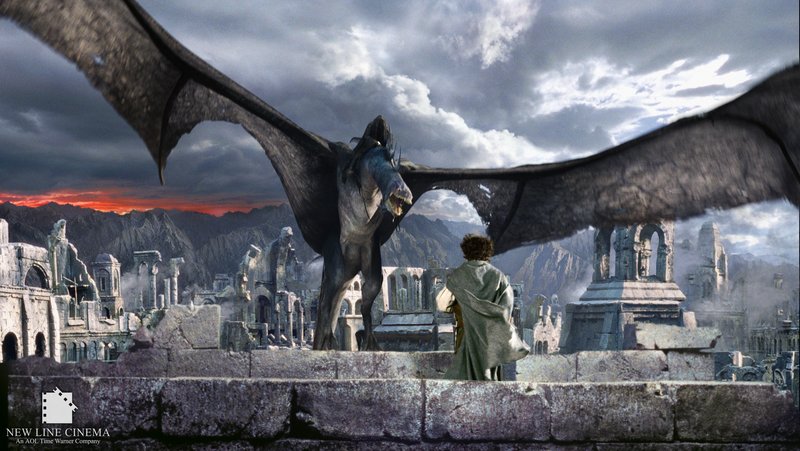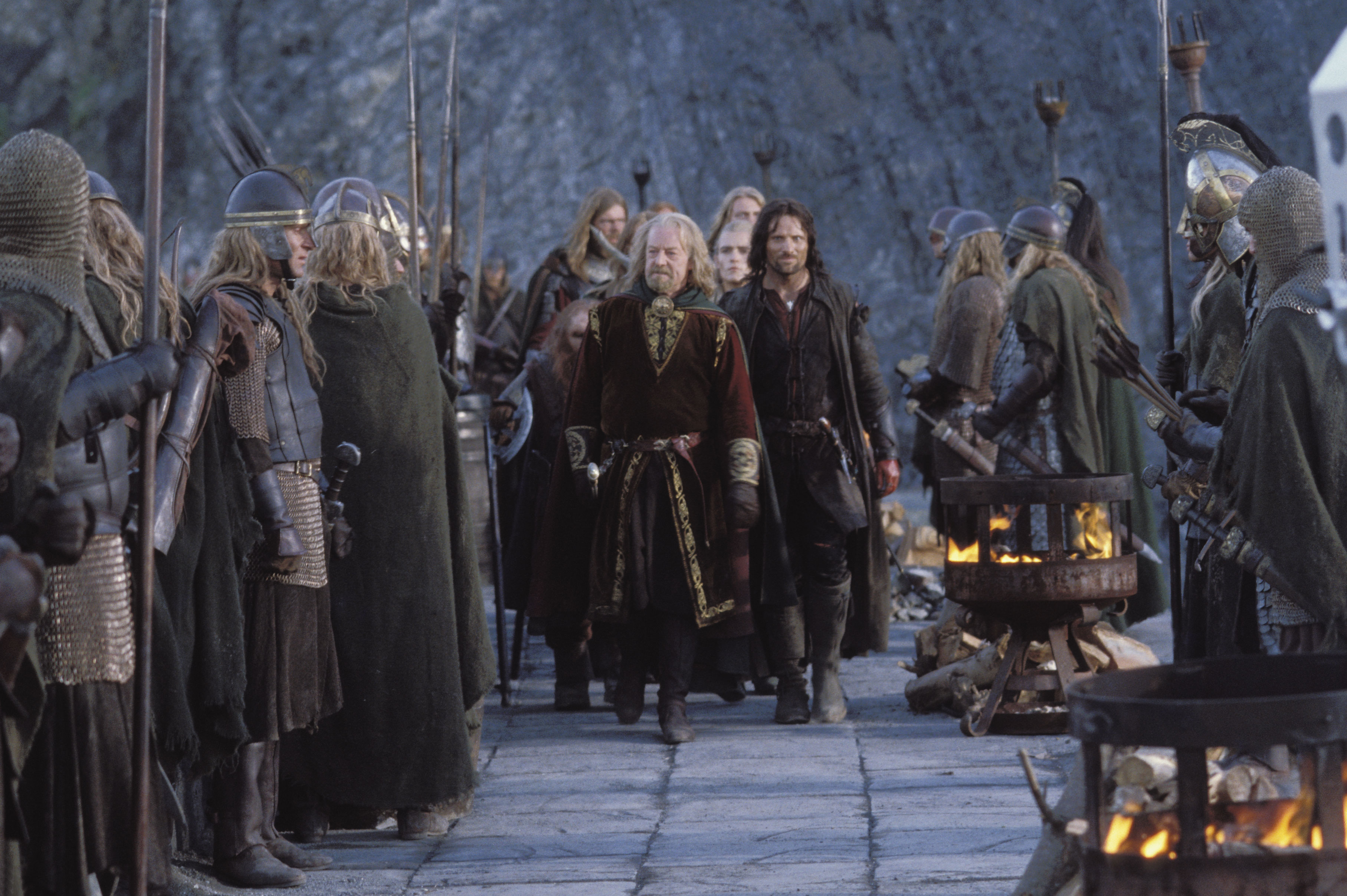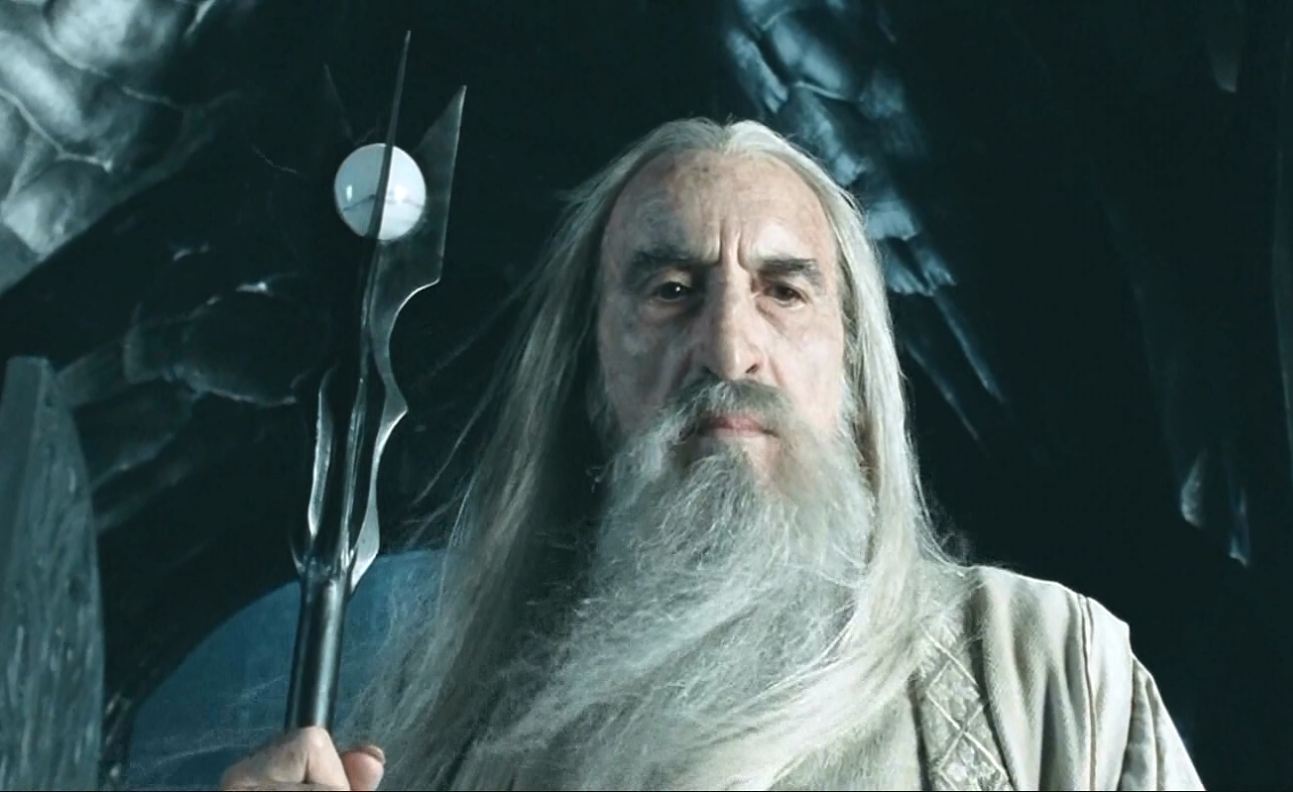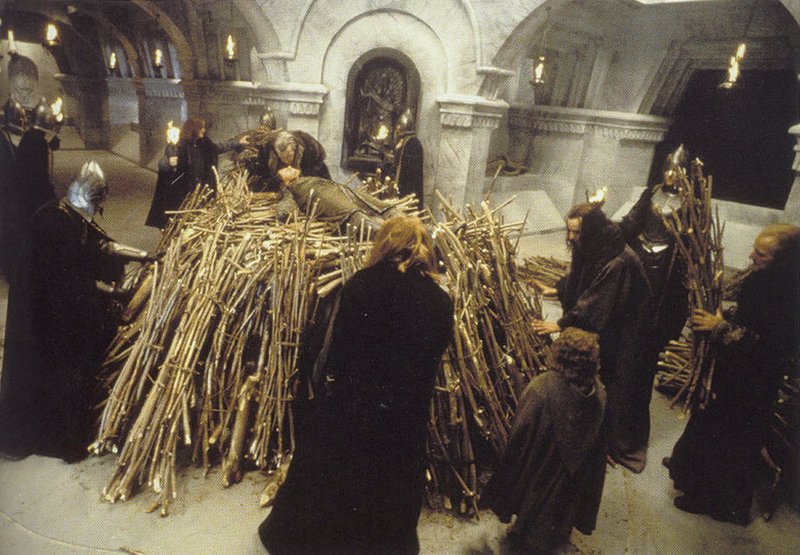For those that hadn't realised before now, there is a difference between books and movies. I know, I was surprised too. But the fundamental differences between the two mediums makes adapting a book into a film difficult. How do you transfers whole chapters of exposition into dialogue, so that it won't feel heavy handed? How do you make jokes told in the descriptive passages work on film, without relying on an overbearing narrator? What works for one rarely works for the other.
One of my many issues with "faithful"adaptations is they get too hung up on making the film as similar as possible to the source material, while losing sight of that which would make the story work best in the new medium. Which is why I'm never that put off when adaptations go off course. If I want to experience the original story, I'll read the original story. If you're going to go to all the trouble of adapting a story, adapt it. Do something original with the characters, the themes, the style. It's why Watchmen is a competent, if not terribly moving piece of film making, and Batman Begins, while taking cues and details from various Bat-stories over the years, isn't pulled from one source exclusively and is a terrific film.
Which brings us to Peter Jackson. In 2000, Ian McKellen wrote that the Lord of the Rings was "perhaps the most faithful screenplay ever adapted from a long novel." And conceded "there will be some omissions of characters and elisions of events." And there has to be. Tolkien was writing a mythology based on his years of training in Old English and Norse literature. Jackson was making a movie, that had to follow the standard formats of pacing, arc structure, character development, and other conventions that make movies enjoyable to watch. Changes have to occur.
And while people ten years ago complained about what had been changed, what was left out, and what was different (and still do), I look back at those changes that made the films better then if they hadn't been changed at all. Hit the jump for the list.
The Obstinate Dickishness of Rohan
In the novel The Two Towers, the people of Rohan are immediately willing to lend aid to Gondor. They have a proud history of assisting their neighbours, have a bountiful trading relationship with them, and are ready to march east at the earliest convenience. The detour to Helm's Deep is only to stash away their weak and young so they'll be safe while the Riders are away. And all the while, Eomer stands by his uncle's side.
None of that contains any dramatic tension at all, because Tolkien wasn't looking to establish that sort of tone. The men of Middle-earth, especially the leaders of Men, are all selfless men of honour, and mostly unimpeachable in their methods. Except for rare examples, none of them show any signs of doubt or inability. Changing Theoden's first and only goal in the film to be the preservation of his people, Gondor be damned, not only gives the character conflict and depth, it also makes a hell of a lot of tactical sense, from the character's perspective. Protect ones own. When he says, "Where was Gondor when the Westfold fell?" it gives the decision political overtones, and creates a dramatic schism that must be overcome. Movies would be boring if everyone did what was right all of the time. Likewise, by exiling Eomer at the beginning of the film, it very quickly establishes how much control Wormtongue (and Saruman) has over Theoden. By having Eomer run off to fight the war himself, if establishes both Eomer's character, and gives Gandalf an established reason for taking off and not taking part in the battle, as well as a degree of audience-recognition when Eomer is the one that comes over the hill.
The Menace of Saruman
Christopher Lee infamously and vocally objected to Saruman's exclusion from the theatrical release of Return of the King, neutering the arc that had seen him elevated to the role of primary antagonist throughout the first two films. Had Jackson kept Saruman's role the size and shape it was in the books, it might not have been a concern. Throughout the first two books, Saruman's influence is felt and alluded to, but Sauron is always the focus of the ire of the Fellowship. Gandalf's capture and torment at Saruman's hand is reported, not experienced. Where the White Wizard is concerned, it is the Voice of Saruman that is the greater danger. The most physical thing Saruman accomplishes himself is his attack on the Shire (more on that below).
But the problem arose that Sauron is an ethereal kind of threat. A flaming eye makes for a great visual, but it isn't exactly mobile. He has minions and influence, but for a villain to be truly effective, he needs to be immediate. He needs to be able to interact with the heroes, to provide a physical threat. Thus, the focus shifted to the more personal treason of Saruman. Essentially, he and Sauron switch places from in the novels. In the films, by making him a recognisable and interactive enemy, the audience has a specific person to distrust. Jackson dropped the ball significantly by excluding Saruman's fall from the theatrical version of the film, but the focus was shifted back to Sauron, who now that Frodo had entered Morder could be the physical threat the film needed in an adversary, that he couldn't be when they were half a world away (the filmed intention for the final battle was for Sauron to manifest and fight Aragorn in hand to hand combat. This was changed in post production to be a troll).
The Placement of the Ents, and Shelob
In the novel, the Ents are introduced, explained, and largely concluded within a single chapter. Within that chapter, we learn a lot about the history of Middle-earth, and of Saruman. In fact, it is one of the chapters that Saurman's direct influence is felt most powerfully. And while the Ents make for a powerful image, introducing them and then abandoning them isn't the best use of pacing. Despite Treebeard's insistence that Ents take a long time to do anything, they are dispatched rather quickly.
The film does a much better job of both making the passage of time an integral part of the Ents, but also structuring the Last March of the Ents so that it is happening concurrently with when Saruman is at his weakest, and most vulnerable to attack. His army depleted and sent to war, he is left only with himself and a paltry number of orcs to fend off an attack by the forces of nature. Unlike in the books, where the results of the Ents attack is only alluded to for the majority of the text, despite being a crippling blow against Isengard, the film places it in a more organic narrative location, and helps cement the victory at Helm's Deep as a greater first strike against the forces of darkness.
I'll admit I was one of the voices crying out when the Two Towers didn't end with the attack in Shelob's Lair. But from a pacing perspective, the arrangement in the films fits better. The books are written in a very intentional way, and Tolkien insisted that as books the stories of Aragorn and Frodo shouldn't be intercut. As written, it provides more tension as to the fates of those not currently focused on (the Mouth of Sauron presenting Frodo's clothes, for instance). Because of this structure, the time line within each section of the novels is self contained, so Frodo's section moves a lot faster then the other. Indeed, in Return of the King, only four chapters focus on Frodo himself before the Ring is destroyed. The remainder is the aftermath, the comings and goings, and ultimate partings of the surviving members of the Fellowship. As many endings as the film had, they wouldn't have been able to keep the novel's presented proportions.
When it came to the film, not intercutting the stories would have been impossible. No one would sit through a three hour film, half of which half is just Aragorn's story, and half of which is Frodo's. It would be akin to watching a double feature, with complete story arcs within each. As with the Ents above, the films responsibly place events in a relative position with each other, which means that Shelob, as natural a place to hang off a cliff in the novels as it was, ends up occurring more in line with the Battle of Pelennor.
The Council of Elrond
The Council of Elrond is essentially an information dump, a place Tolkien used to finally merge the originally unrelated Hobbit with this larger environment he had been constructing. The Council was his opportunity for each character to establish themselves, and their connections with the larger world, and the history of the One Ring. Bilbo and Gandalf go on at great length about the finding of the Ring, and the riddle contest with Gollum, none of which was in the original edition of the Hobbit (or was there very differently).
Filming this scene would have brought the film to a dead stop. There is a rule in writing: show, don't tell. In movies (which are a visual medium), it is all the more important. What is more engaging, a character telling someone about a battle, or actually showing the battle? So, the film used the prologue sequences attached to each film (and occasional flashbacks) to provide the viewers only the details from the history of Middle-earth required for these films, in a engaging and cinematic fashion, and turned the Council scene into a call to arms, where character conflicts and motivations are established, and the Fellowship forged.
The Exclusion of Tom Bombadil

|
| Bombadil's home, from the MMORPG |
And it is the most easily excised part of the book. Because of it's irrelevance to the primary story, and in the interests of building the tension up at those early stages, Bombadil had no place. And any of the purity and isolation that Bombadil offered was already presented via the Shire, which is much more isolated in the films then in the books. The species of hobbits fill the role of the pacifist, rather then having to explain a frolicking man speaking in rhythms, to which there is no explanation (viewers would be less open to Tolkien's insistence that "even in a mythical Age there must be some enigmas, as there always are. Tom Bombadil is one (intentionally)."
The Corruption of Gondor
In the books, Boromir is meant to be the counterpoint to Aragorn: tempted where the other is steadfast, corruptible where the other is untarnished, and meek where the other is brave. It works because Aragorn is an example of the traditional mythic hero. Likewise, Faramir is presented as an analogue to Boromir, displaying all the qualities of Aragorn, but never succeeding because his father Denethor loved his eldest son more. Denethor himself is shown as a man of great virtue who has become flustered with grief, and ultimately corrupted by the direct influence of Sauron, via the pelantir. These are all traditional mythic roles, which was Tolkien's primary goal, to create a new mythology using the foundations and of the very old.
As with the people of Rohan above, each of the cinematic characters received a downgrade of their mettle from the literary counterpart's. Aragorn doesn't start having accepted his role as heir to the throne, he grows into it over the course of the films as part of his heroic journey. Gandalf isn't all-knowing and resolute, he's nervous and uncertain, but maintains a brave face before his allies. The characters evolve over the trilogy into the men that Tolkien envisioned them to be, and that alone is a change that improves the overall quality of the films. So too the men of Gondor have greater failings. Jackson explained his alterations to Faramir as the larger effect of the Ring, slowly depleting men of their self-control. Boromir is shown to waver, and it costs him his life. Faramir proves himself better then his brother, but cannot claim victory because of his secondary status in the family. Denethor is still corrupted by Sauron, but it is a gradual moral corruption, combined with extreme grief. Denethor's actions seem more like post traumatic stress then anything else, having his eldest son die, faced with a seemingly unbeatable enemy, and the presumption that his youngest son has died as well just pushes him over the edge.
The Scouring of the Shire
Tolkien insisted that the Scouring was necessary, to show the influence of Sauron left no corner of Middle-earth untouched. That, and it brings a conclusion to the arcs of Merry, Pippin, and especially Sam as they prove themselves leaders among their own kind. It was also the clearest example of allegory in the books, representing what Tolkien believed to be the rape of the British countryside by industry.
In the film, the allegory is transferred to Saurman and his decimation of Isengard. By keeping the Shire free of the influence of Sauron, Saruman or anyone else, it highlights the greater effect the events of the film have on the four hobbits. The rest of the Shire-folk are innocent and care free, but the four friends come back to a home that feels less comfortable then it did. Which in and of itself is a pretty good allegory for the way many soldiers in the real world feel after returning from combat: nothing has changed, but everything feels different.
The film touches on the scouring by presenting it in Galadriel's mirror, and is stated as the inevitable outcome if Frodo fails in his task. By doing so, it eliminates the scouring from happening simply through victory. And that is the face value reason for the film: to stop bad things from happening; to protect the Shire from evil. The lands of men were already corrupted by treason and orcs, and the lands of the elves were being abandoned, but the Shire was pure. By beating Sauron, they earn the right to keep the Shire pure, and thus accomplish their most explicit goal.









nice one
ReplyDeleteThanks. I like it (and had actually forgot I had written it).
Delete